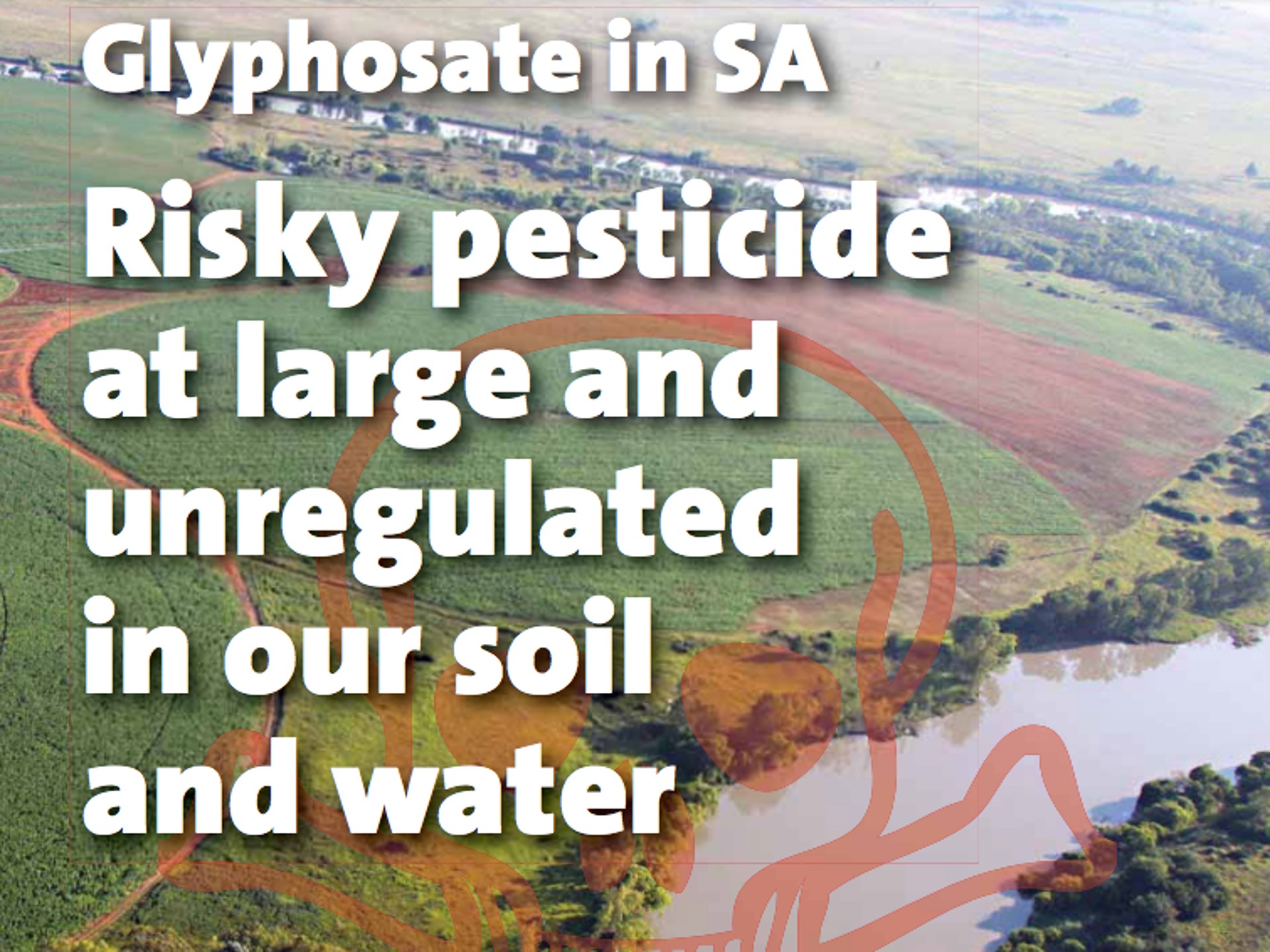Latest Resources

2 July 2016
Genetically Modified (GM) Soya in South Africa: Status Quo Report
This briefing paper presents the status of genetically modified (GM) soya in South Africa. GM Soyabean seed owned by Monsanto and genetically engineered to withstand the herbicide glyphosate, accounts for 90% of all soya bean production in South Africa. Download the report.

18 April 2016
Zimbabwean smallholder support at the crossroads: Diminishing returns from Green Revolution seed ...
This scoping report is published jointly by the African Centre for Biodiversity (ACB and the Zimbabwe Small-Scale Organic Farmers’ Forum (ZIMSOFF). The report focuses on government and donor farm input subsidy programmes (FISPs) and seed aid in facilitating the spread of Green Revolution technologies and raises questions about who really benefits from these programmes. It […]

9 November 2015
Which way forward for Zambia’s smallholder farmers: Green Revolution input subsidies or agroecology?
In this report, we provide a critique of the Green Revolution Farmer Input Subsidy project in Zambia, looking at its impacts particularly for small holder farmers and their seed systems.

24 October 2015
Investments in the Beira Corridor in Mozambique: threats to farmers’ seed and food systems
The African Centre for Biodiversity (ACB) in partnership with the União Nacional de Camponeses (UNAC, National Peasants Union), and Kaleidoscopio has today released preliminary findings in a research project: ‘Agricultural investment activities in the Beira Corridor, Mozambique: Threats and opportunities for small-scale farmers.’ Joining Zimbabwe, Zambia and Malawi to the coast of Mozambique, the Beira […]

20 May 2014
Below the belt, below the breadline – South Africa’s inequitable and GM contaminated ...
The African Centre for Biosafety (ACB) has today brought into sharp focus the white bread industry in South Africa with the release of its new report “GM Contamination, Cartels and Collusion in South Africa’s Bread Industry.’ The report shows that the white bread tested contains high levels of Monsanto’s genetically modified (GM) soya in the […]

27 November 2012
Harmonisation of Africa’s seed laws: death knell for African seed systems
The African Centre for Biosafety (ACB) has released its new report titled, ‘Harmonisation of Africa’s seed laws: a recipe for disaster- Players, motives and dynamics. The report shows how African governments are being co-opted into harmonising seed laws relating to border control measures, phytosanitary control, variety release systems, certification standards and intellectual property rights, to […]

8 October 2012
Glyphosate in SA: Risky pesticide at large and unregulated in our soil and water
The research shows that although glyphosate (a weed killer) is ubiquitous throughout South African agriculture, it poses many environmental risks and yet there is precious little research done to monitor and manage its environmental impacts. Read more here.

16 May 2012
South Africa’s Seed Systems: Challenges for food sovereignty
The African Centre for Biosafety and Trust for Community Outreach and Education, have the pleasure of sharing with you, our new study, which provides an overview of the structure of the seed system in South Africa, the types of seed in use and their pros and cons, the legislative and policy environment, and the role […]

9 May 2011
Critique of SANBI’s Studies on Monsanto’s MON 810
During early in 2011, the South African National Biodiversity Institute (SANBI) published a report titled, Monitoring the Environmental Impacts of GM Maize in South Africa. The report was a culmination of a study by the Environmental Biosafety Cooperation Project (EBCP) aimed at developing a framework for monitoring of insect resistant maize, Mon810, belonging to Monsanto. […]

12 May 2010
Traceability, segregation and labelling of genetically modified products in South Africa: A Posit...
South Africa has promulgated national legislation, the Consumer Protection Act (CPA), which creates an opportunity for the mandatory labelling of certain foodstuffs containing or which are genetically-modified organisms (GMOs). The Act sets out a number of consumer rights that have relevance to the sale of products with genetically modified components. These include the right to […]
